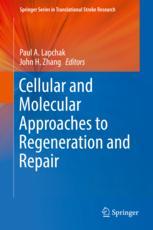

Most ebook files are in PDF format, so you can easily read them using various software such as Foxit Reader or directly on the Google Chrome browser.
Some ebook files are released by publishers in other formats such as .awz, .mobi, .epub, .fb2, etc. You may need to install specific software to read these formats on mobile/PC, such as Calibre.
Please read the tutorial at this link: https://ebookbell.com/faq
We offer FREE conversion to the popular formats you request; however, this may take some time. Therefore, right after payment, please email us, and we will try to provide the service as quickly as possible.
For some exceptional file formats or broken links (if any), please refrain from opening any disputes. Instead, email us first, and we will try to assist within a maximum of 6 hours.
EbookBell Team

4.0
96 reviewsThis book discusses recent advances in the field of translational stroke research. The editors have designed the book to provide new insight into the importance of regeneration and repair mechanisms for stroke victims. The editors have brought together a talented group of international stroke researchers and clinicians to contribute to this volume, which is written for students, researchers and physicians in biotechnology, neurosciences, neurology, neuroradiology and neurosurgery.
Throughout the world, stroke is still a leading cause of mortality and morbidity; there are 152,000 strokes in the United Kingdom, 62,000 in Canada, and approximately 15 million people worldwide. Large communities of strokesurvivorsare eagerly awaiting scientific advances in translationalstroke research related to regeneration and recovery of function that wouldoffernewtherapeutics for rehabilitation and regeneration utilizing novel stem cell and molecular-based approaches. This volume will allow the reader toundersnd the future of stroke treatment from its inception in the laboratory through to clinical trial design. The reader willlearn about the recent advancesmade in these areas related to basic and applied stroke research and theirtranslational potential.
Dr. Paul A. Lapchak is Professor of Neurology and Director of Translational Research in the Departments of Neurology & Neurosurgery at Cedars-Sinai Medical Center in Los Angeles CA, USA. Dr. Lapchak is an internationally recognized expert conducting translational drug development research for ischemic and hemorrhagic stroke.
Dr. John H. Zhang is Professor of Anesthesiology, Neurosurgery, Neurology, and Physiology, and Director, Center for Neuroscience Research at Loma Linda University School of Medicine, Loma Linda, CA, USA. Dr. Zhang is an internationally recognized expert working on drug development for hemorrhagic stroke.